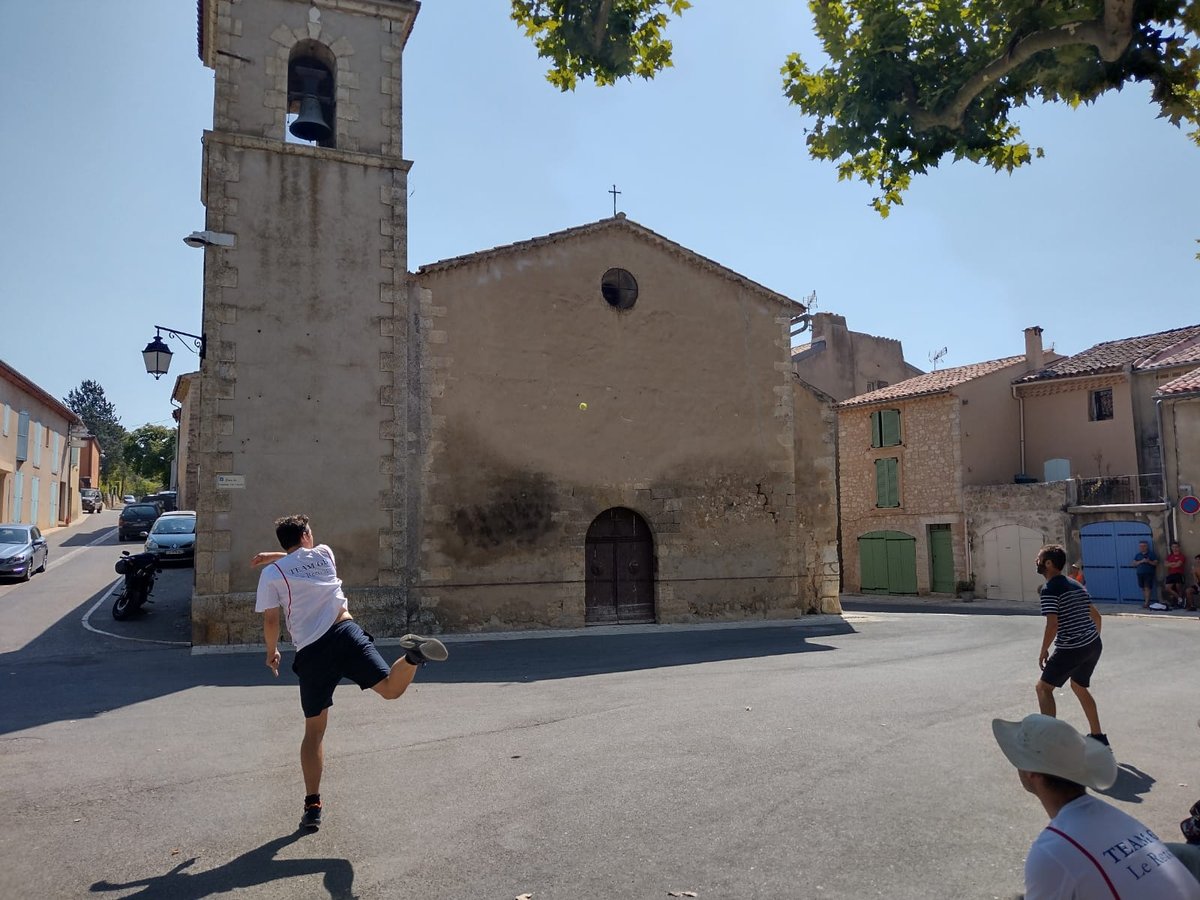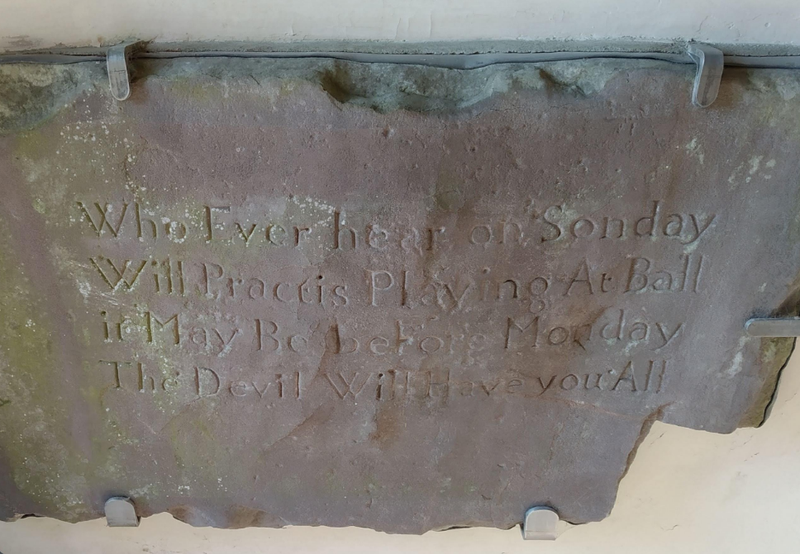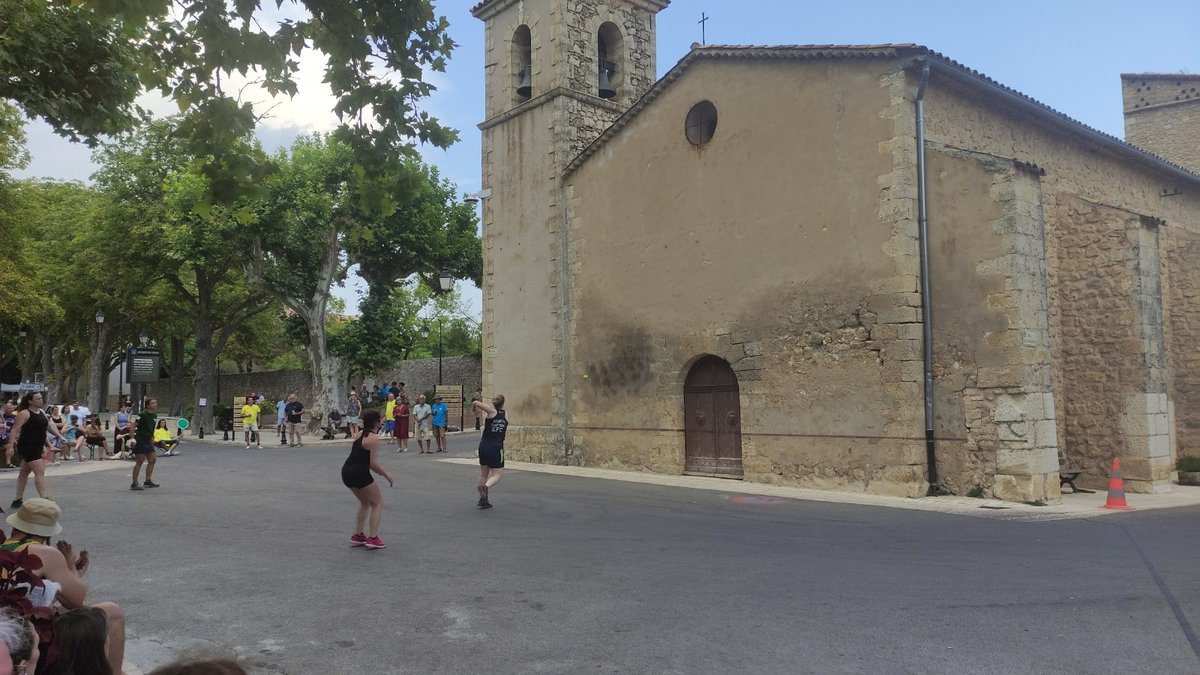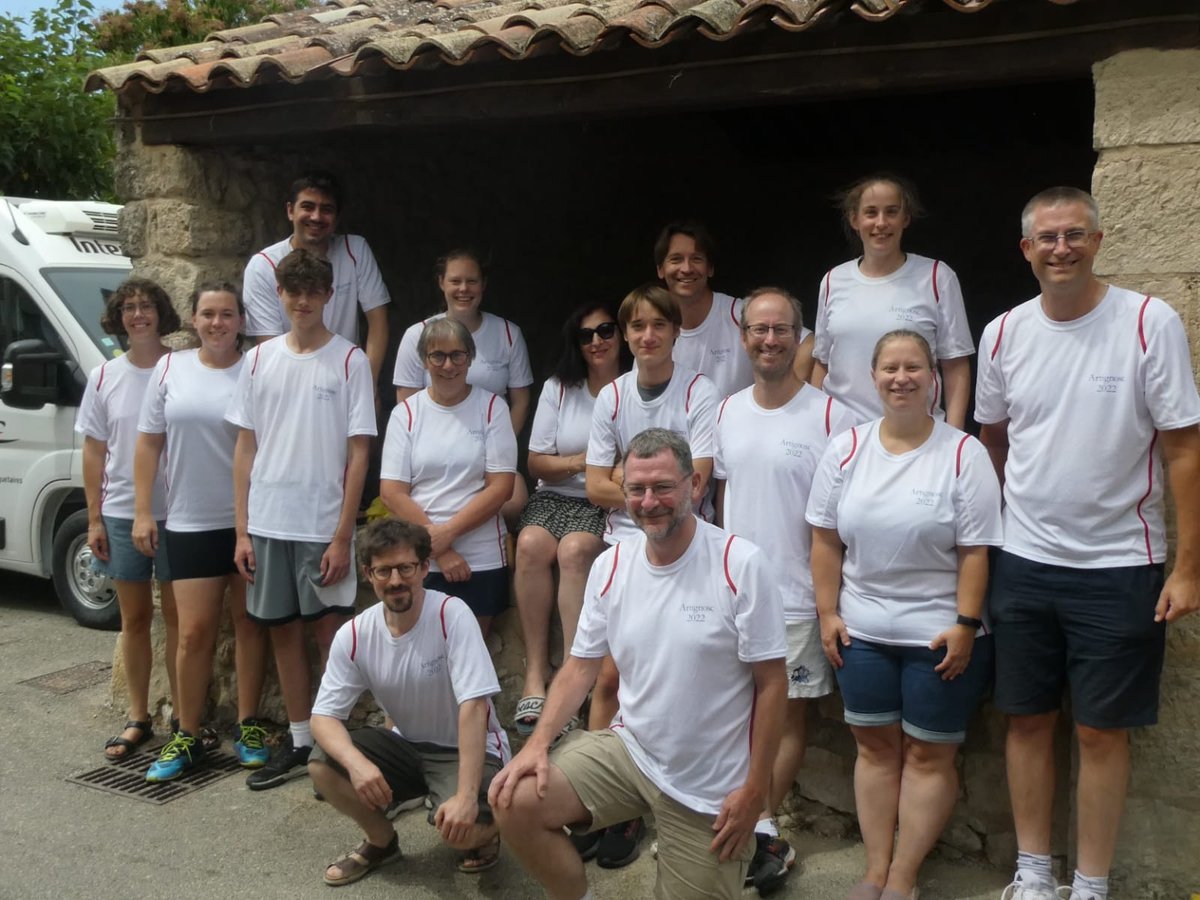A church [wall] at the heart of the local community
Handball was once played against many a church wall in Wales. With only one handball court left in Wales, Matt Chinery, Head of Legal Services, Representative Body of the Church in Wales, tells us why a game of handball could be your church's next outreach project.

For almost as long as people have been building walls, other people have been hitting balls against them.
Whilst organised versions of handball (or ‘fives’, ‘jeu de paume’ or’ pêl-law’) can be traced as far back – at least – as the Romans, for many centuries the sport was closely intertwined with the church. For centuries all across Europe, and nowhere more than Wales, churchyards resonated with the thwack of a ball against a church wall, and churchwardens bemoaned games being played on Sundays interrupting services (and the occasional broken window!).
The tensions between church authorities and ball-players is wonderfully demonstrated at Llanvair Discoed in the Diocese of Monmouth, where the following inscription was carved (and remains in place to this day):

Who Ever hear on a Sonday,
Will Practis Playing At Ball,
it May Be before Monday,
The Devil Will Have you All.
As crowds – and money-making opportunities – grew in the 18th and 19th centuries, the game moved away from churches to purpose-built walls and courts, often erected in the garden of a pub. At its height it was almost certainly the most popular sport in Wales, but with the rise of rugby and soccer in the 20th century, the game declined and today there is a solitary handball court remaining in Wales, at Nelson.
Across Europe, organized handball in churchyards is almost entirely extinct. Except for a remarkable village in South-East France.

Artignosc-sur-Verdon, deep in Provence, is a sleepy village, a bit too far from the sea and from an airport (indeed from any sizable city) to be a tourist hotspot. A large number of its 250-300 residents are from families who have lived there for generations. Those previous generations passed the time by hitting a small hard ball against the west wall of the parish church, which backs onto the village square. Whilst the invention of tarmac and the rise of the motor car turned playing areas into highways and killed the game in neighbouring villages, the Artignoscaises did not let this happen. Cars come to a halt at the edge of a court whilst a point is ongoing, to be waved through before the next serve.
Previous generations passed the time by hitting a small hard ball against the west wall of the parish church.
The old hard ball has been replaced by a tennis ball, easier on both your hands and the masonry. The front wall of the court includes all the eccentricities of ecclesiastical architecture – players aim for the carvings on the wooden west door to engineer an unpredictable bounce, or seek a deflection off the metal drainpipe to fox their opponent.
Some years ago the village combined its annual festival (held close to the Feast of the Assumption each year) with a handball tournament which quickly became known as the ‘World Cup of Paume Artignoscaise’. At first, it drew former residents, long since moved away, back to the village for the weekend. Pelota and handball players from other parts of south France then started coming along. And since 2017, a small group of handball and fives players from the UK have made the trip across the Channel to truly make it an international competition.
This year, I was delighted to be invited to join a dozen teammates taking part in the World Cup for ‘Team GB’.

The weekend has left a huge impression on me. Sitting in the village square for a day gave an amazing insight into village life. In the heat of the midday sun, Team GB got in as much practice as we could. Around 4pm, the village youth poured out into the square, training to emulate their grandparents’ success in tournaments gone by (and beat their parents). By six, the ‘professionals’ wandered out, warily sizing up their British opponents in a series of carefully choreographed match-ups.
Strangers are welcomed with warmth all church congregations should aspire to.
By mid-evening, the village square was humming with life and laughter, all in the shadow of the magnificent 11th century Romanesque parish church. This tiny sport -and therefore the church that hosts it – is the glue that holds the villagers together, across generations and social classes (there is no cheaper game to play in the world – total cost: one tennis ball). Strangers are welcomed with warmth all church congregations should aspire to.
It will come as no surprise to learn that the rural church in France is struggling. A vocations crisis means diocesan clergy are spread extremely thinly; Artignosc shares a single priest with six other churches, and the Diocesan website suggests it is at least a month until their next Mass. But on Friday, when I was able to get inside, a found a church beautifully maintained and clearly dearly loved by the whole village. Speaking to one local inside, she said ‘the church is the village’. The impression that I got was that the church’s key role in its unique sport was a key part of that.
The church’s presence in the community can be a blessing in unexpected ways.
And so to the World Cup. We won, we lost (some, myself included, more than others) we cheered, we laughed we danced, all whilst gazing on the church’s west wall and the two crosses on the roof of the main church and the bell-tower. It was a fine reminder about how the church’s presence in the community can be a blessing in unusual and unexpected ways.
And if any clergy reading have a church wall that might work for a game of jeu de paume, perhaps you could let me know? (- we'll check with the Archdeacons first -editor)
Fancy a game of Handball?
Players of all standards, including beginners, are welcome at the handball court at Nelson. There are regular sessions on Tuesday and Thursdays, 6-8pm and details are on Facebook: https://www.facebook.com/groups/559881479199117
Handball - The Story of Wales' First National Sport by Kevin Dicks is published by Y Lolfa Cyf and is available from Y Lolfa and your local bookshop.
When Matthew Chinery is not working as the Representative Body’s Head of Legal Services, he is almost certainly on a handball or fives court somewhere in the world. Follow Matthew on Twitter: Matt (@chinmj) / Twitter